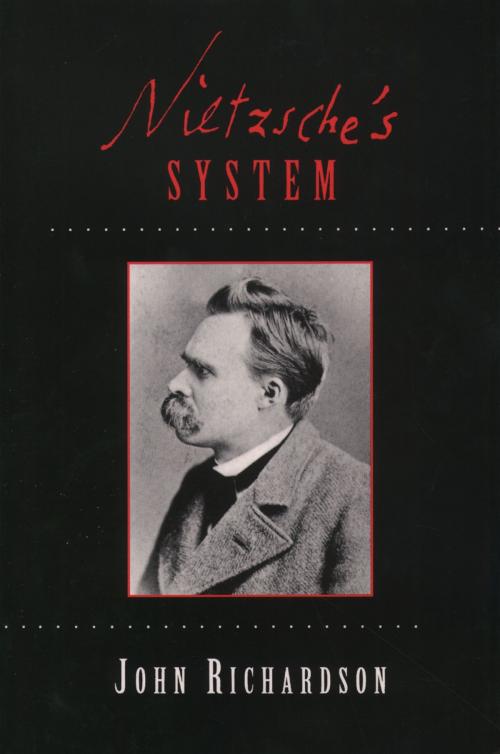Nietzsche's System
Nonfiction, Religion & Spirituality, Philosophy, History, Criticism, & Surveys, Metaphysics| Author: | John Richardson | ISBN: | 9780190288747 |
| Publisher: | Oxford University Press | Publication: | May 23, 2002 |
| Imprint: | Oxford University Press | Language: | English |
| Author: | John Richardson |
| ISBN: | 9780190288747 |
| Publisher: | Oxford University Press |
| Publication: | May 23, 2002 |
| Imprint: | Oxford University Press |
| Language: | English |
This book argues, against recent interpretations, that Nietzsche does in fact have a metaphysical system--but that this is to his credit. Rather than renouncing philosophy's traditional project, he still aspires to find and state essential truths, both descriptive and valuative, about us and the world. These basic thoughts organize and inform everything he writes; by examining them closely we can find the larger structure and unifying sense of his strikingly diverse views. With rigor and conceptual specificity, Richardson examines the will-to-power ontology and maps the values that emerge from it. He also considers the significance of Nietzsche's famous break with Plato--replacing the concept of "being" with that of "becoming." By its conservative method, this book tries to do better justice to the truly radical force of Nietzsche's ideas--to demonstrate more exactly their novelty and interest.
This book argues, against recent interpretations, that Nietzsche does in fact have a metaphysical system--but that this is to his credit. Rather than renouncing philosophy's traditional project, he still aspires to find and state essential truths, both descriptive and valuative, about us and the world. These basic thoughts organize and inform everything he writes; by examining them closely we can find the larger structure and unifying sense of his strikingly diverse views. With rigor and conceptual specificity, Richardson examines the will-to-power ontology and maps the values that emerge from it. He also considers the significance of Nietzsche's famous break with Plato--replacing the concept of "being" with that of "becoming." By its conservative method, this book tries to do better justice to the truly radical force of Nietzsche's ideas--to demonstrate more exactly their novelty and interest.















